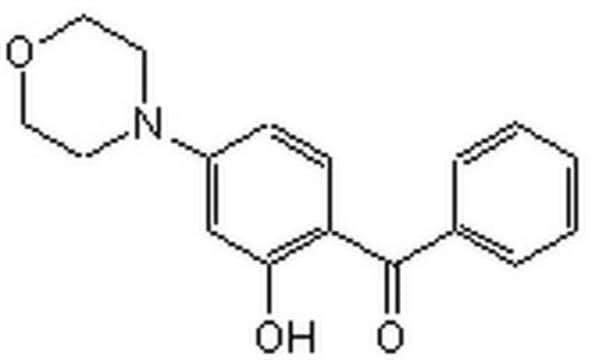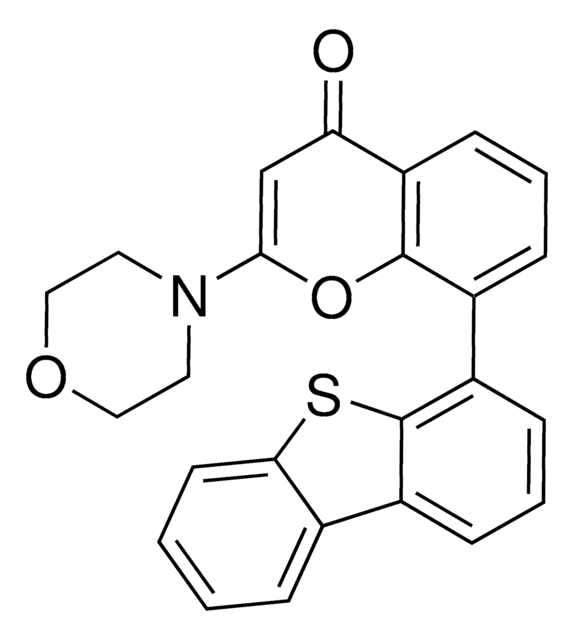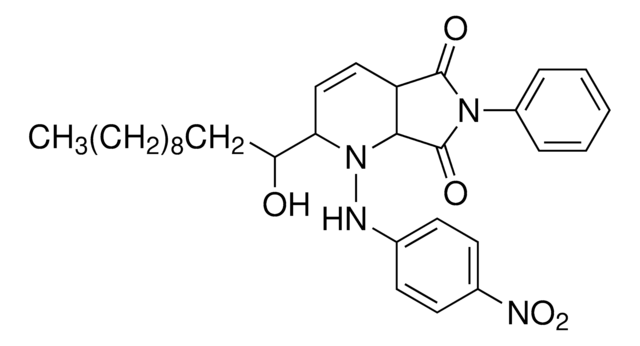260961
DNA-PK Inhibitor II
The DNA-PK Inhibitor II, also referenced under CAS 154447-35-5, controls the biological activity of DNA-PK. This small molecule/inhibitor is primarily used for Phosphorylation & Dephosphorylation applications.
Sinonimo/i:
DNA-PK Inhibitor II, NU7026, DNA-Dependent Protein Kinase Inhibitor II, 2-(Morpholin-4-yl)-benzo[h]chromen-4-one, LY293646
About This Item
Prodotti consigliati
Livello qualitativo
Saggio
≥95% (HPLC)
Stato
crystalline solid
Produttore/marchio commerciale
Calbiochem®
Condizioni di stoccaggio
OK to freeze
protect from light
Solubilità
DMSO: 2 mg/mL
methanol: 700 μg/mL
Condizioni di spedizione
ambient
Temperatura di conservazione
2-8°C
InChI
1S/C17H15NO3/c19-15-11-16(18-7-9-20-10-8-18)21-17-13-4-2-1-3-12(13)5-6-14(15)17/h1-6,11H,7-10H2
KKTZALUTXUZPSN-UHFFFAOYSA-N
Descrizione generale
Azioni biochim/fisiol
DNA-PK
Confezionamento
Attenzione
Ricostituzione
Altre note
Hollick, J.J., et al. 2003. Bioorg. Med. Chem. Lett.13, 3083.
Veuger, S.J., et al. 2003. Cancer Res.63, 6008.
Vlahos, C.J., et al. 1994. J. Biol. Chem.269, 5241.
Note legali
Codice della classe di stoccaggio
11 - Combustible Solids
Classe di pericolosità dell'acqua (WGK)
WGK 3
Certificati d'analisi (COA)
Cerca il Certificati d'analisi (COA) digitando il numero di lotto/batch corrispondente. I numeri di lotto o di batch sono stampati sull'etichetta dei prodotti dopo la parola ‘Lotto’ o ‘Batch’.
Possiedi già questo prodotto?
I documenti relativi ai prodotti acquistati recentemente sono disponibili nell’Archivio dei documenti.
Il team dei nostri ricercatori vanta grande esperienza in tutte le aree della ricerca quali Life Science, scienza dei materiali, sintesi chimica, cromatografia, discipline analitiche, ecc..
Contatta l'Assistenza Tecnica.








